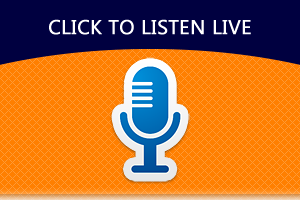The Paleo Diet – A Peek Into Raw Food Living
The "Palaeolithic diet" (Paleo) is a highly popular raw food diet which made its official debut in the mid-1970s. Since then, the evolutionary diet has been promoted and adapted by several researchers and is featured in a number of academic journals.
Of controversial origin, the Paleo diet was first developed and marketed by gastroenterologist, Walter L. Voegltin who advanced the notion that the diet is the ideal food for mankind.
The concept put forward by Voegltin is not new. It is based on the promise that modern humans are genetically adapted to the diets of our earliest ancients, and diseases which trouble modern man are the result of industrialisation and affluence. In general, the diet of our ancestors had the proper balance of nutrients to reduce chronic diseases and promote health.
With affable nicknames such as the caveman diet, Stone Age, hunter-gatherer and warrior diet, the names are good indicators of its simple nature and basic lifestyle. The Paleo diet is an ancient "take" on the health habits of foragers who survived on fish, fruits, vegetables, roots, and nuts. It is an organic, raw food diet that excludes dairy, grain, refined sugar, and all processed oils.
Similar to a vegan diet, this health plan consist primarily of plant based unprocessed foods with minimal heating to preserve its natural, potent living ingredients. The diet has received overwhelming support from individuals whose health has improved. Cancer patients and individuals with immune suppressed conditions have also come forward to give their positive stories.
The diet has also received strong criticisms from detractors who view it as a fad diet.
Proponents of the diet :
The diet has received rave reviews and accolades from users and researchers alike; it is described as an invaluable nutritive way of eating, filled with elements to restore tissue cells.
In one study, Loren Cordain, PhD, at Colorado State University, commented: "Clinical trials have shown that the Paleo Diet is the optimum diet that can lower the risk of cardiovascular disease, blood pressure, marks of infection, help with weight loss, reduce acne, promote optimum health and improve athletic performance. "
Critics of the diet:
Critics of the diet have argued that it lacks credibility and logic. The main views expressed were in disagreement with the facts promoted, that hunter-gatherers were generally free of sicknesses unlike their compatriots in "civilized societies" who were beset with common afflictions and ailments.
The critics also dismissed the promise that our human makeup is genetically programmed to eat like our Palaeolithic ancestors. They believe that modern civilization developed due to advanced thinking, and with it inherent biological changes.
Weighing in on the pros and cons of raw food eating, it is acknowledged that a diet based on organic herbs and spices, nuts, fruits, and vegetables, will contain living properties and essential vitamins and minerals needed to live long and well. Although a true Paleo diet is impossible to imitate and impractical to attempt, modest variations of its model will derive immeasurable health benefits for those who maintain it.













 Hits Today : 967
Hits Today : 967 Total Hits : 974263
Total Hits : 974263 Who's Online : 1
Who's Online : 1